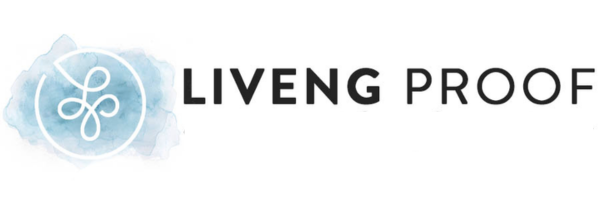IN THIS EPISODE:
+ What is orthorexia?
+ What are the hallmark symptoms?
+ My personal experience with orthorexia
+ Resources if you want to learn more about it, or seek help
Support the show on Patreon HERE
Additional diet culture episodes you might like: #118 The Effects Of Diet Culture
CONNECT WITH ENGRID
Instagram: @livengproof
Liveng Proof Podcast
Website
From nationaleatingdisorders.org
“Although not formally recognized in the Diagnostic and Statistical Manual (DSM)awareness about orthorexia is on the rise. The term ‘orthorexia’ was coined in 1998 and means an obsession with proper or ‘healthful’ eating. Although being aware of and concerned with the nutritional quality of the food you eat isn’t a problem in and of itself, people with orthorexia become so fixated on so-called ‘healthy eating’ that they actually damage their own well-being.
Without formal diagnostic criteria, it’s difficult to get an estimate on precisely how many people have orthorexia, and whether it’s a stand-alone eating disorder, a type of existing eating disorders like anorexia, or a form of obsessive-compulsive disorder. Studies have shown that many individuals with orthorexia also have obsessive-compulsive disorder.
According to the American Psychiatry Association”:
Obsessive-compulsive disorder (OCD) is an anxiety disorder in which time people have recurring, unwanted thoughts, ideas or sensations (obsessions) that make them feel driven to do something repetitively (compulsions). The repetitive behaviors, such as hand washing, checking on things or cleaning, can significantly interfere with a person’s daily activities and social interactions.
HALLMARK SYMPTOMS:
OBSESSIVE/COMPULSIVE:
- Obsessive thinking around what you’ve eaten, what you will eat, meal prepping
- Making food choices often coincide with thoughts like “Is this a good nutritional choice?”
- Obsessively checking nutritional labels
- Often eliminating foods from what you “can” eat → cutting out an increasing number of food groups (no sugar, no dairy, no meat, no animal products)
- When workout routine is sacrificed, interrupted or delayed, it causes anxiety/worry/panic
MORALITY:
- Feelings of shame/guilt associated with particular foods
- Attaching morality to what you eat
- Labeling foods as “good” or “bad”
- Believing certain foods are “clean, pure, superior”
- Often binge eat “healthy” foods
- Desire to feel clean & pure
- Feelings of superiority to others, because of food choices
- Unusual interest in the health of what others are eating
SOCIAL EFFECTS:
- Spending hours per day thinking about what food might be served at upcoming events
- Eating out of the norm causes anxiety
- Limited number of restaurants you’ve deemed appropriate that have things you “can” eat
- Anxiety around unplanned outings
- Your food choices/ the way you eat often limits your ability to socialize
- Actively choose to abstain from social engagements because the setting is not conducive to the way you eat
- Anxiety associated with eating out
- Showing high levels of distress when ‘safe’ or ‘healthy’ foods aren’t available
ADDITIONAL EFFECTS:
- Thinking “diet” / “health” foods are delicious when they really aren’t
- In some cases stomach and digestive issues
- Obsessive following of food and ‘healthy lifestyle’ blogs on Twitter and Instagram
RESOURCES/ REFERENCES:
https://podcasts.apple.com/us/podcast/nourishing-women-podcast/id1273444999?i=1000418421467
https://podcasts.apple.com/us/podcast/nourishing-women-podcast/id1273444999?i=1000418421467
https://podcasts.apple.com/us/podcast/nourishing-women-podcast/id1273444999?i=1000440847525
https://www.nationaleatingdisorders.org/learn/by-eating-disorder/other/orthorexia
https://www.psychiatry.org/patients-families/ocd/what-is-obsessive-compulsive-disorder
https://journals.plos.org/plosone/article?id=10.1371/journal.pone.0219609
Podcast: Play in new window | Download
Subscribe: Apple Podcasts | Email | Support





No Comments